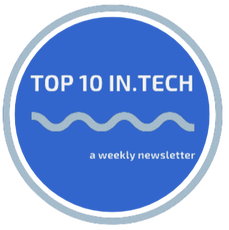|
1. SaaS METRIC OF THE WEEK: People are the most important (and expensive) metric for any company, especially SaaS (yes, I would argue more important than the actual product). Revenue per FTE is one metric to measure when it comes to people efficiency, but a better one perhaps is the ROSE Metric (Return on SaaS Employees). This metric highlights the tradeoffs between a SaaS company's headcount, recurring revenue, and EBITDA growth.
2. BURN MULTIPLES 1 of 2: In last week's newsletter, I referenced that since Q1 '22, there has been lots of down-turn industry advice and not a lot of tactics, but operators are expected to find the balance between growth and efficiency. So it's time to brush up on those efficiency metrics in this 2 part post covering Burn Multiple and Sales Efficiency metrics. A Burn Multiple measures how much a startup is burning to generate each incremental dollar of ARR. The higher the Burn Multiple, the more the startup is burning to achieve each unit of growth. Here is how to calculate this metric, and here is an example. 3. SALES EFFICIENCY 2 of 2: Sales efficiency is a metric that allows managers to understand the direct revenue impact of each dollar spent on expenses or investments. It's how quickly your company, or team, creates value. Read this excellent primer article and get into a deeper dive here. 4. NETWORK EFFECTS: Building and scaling products like Slack and Zoom are still quite challenging, so take a read of this conversation between Andrew Chen and Des Traynor on how to build networks that make your product thrive. 5. ON-SITES: Lots has changed operationally in the past few years, and for many of us, remote teams, work-from-home, and flexible work policies are standard. But I have also been in many discussions lately about the return of the all-team on-site. If you and your team are rusty on executing well on these all-team meetups, bookmark this article for when it comes time to plan. 6. DUE DILIGENCE: Of the VC kind has gotten harder and longer. So read this article from Allison Weil Lechner at Hyde Park Venture Partners for great insight on what VCs expect when deciding on an investment. FE International has a similar piece but is written from an acquisitions lens. 7. SEARCH: I used to brag about my Google Search skills to help me solve problems, and anecdotally I have been feeling like my Google Search skills have been letting me down in recent years, and I've even had discussions with people around if it's Google, or I'm losing my one and only superpower. So, of course, it gave me tremendous relief to read this article last week - which validated that it's not me! Well, actually, it's not really Google either. It's the web that's gone to shit, and a lot of it has become "too inauthentic to trust." 8. COMPENSATION: The team at Carta has an excellent report on the State of Startup Compensation as of the end of the first half of 2022. They look into questions such as what makes up for the largest share of compensation spend, what roles get paid the most, and are startups still hiring remote workers (yes, remote hires now represent 62% of all new contracts). 9. DEVELOPERS: Complimentarily to #8 above, Stack Overflow's latest developer survey shows that most developers work remotely and favor a flexible working environment where they can use their favorite technologies (which, boringly enough, remain JavaScript, AWS, and Docker). 10. CASE STUDY: Zendesk - I don't use them, but I know plenty of people that do; not surprising given that they are now at ~$16B in ARR! They have 140 $1m+ ACV - up 65% - wow - absolute whales of customers. While Zendesk still services thousands of SMBs, those customers (< $1,000 ACV) are less than 1% of total revenues (thanks a lot to those Whale Customers we can all dream of). POD OF THE WEEK: From McKinsey - Forward Thinking on tech and the unpredictability of prediction with Benedict Evans. Comments are closed.
|
|
